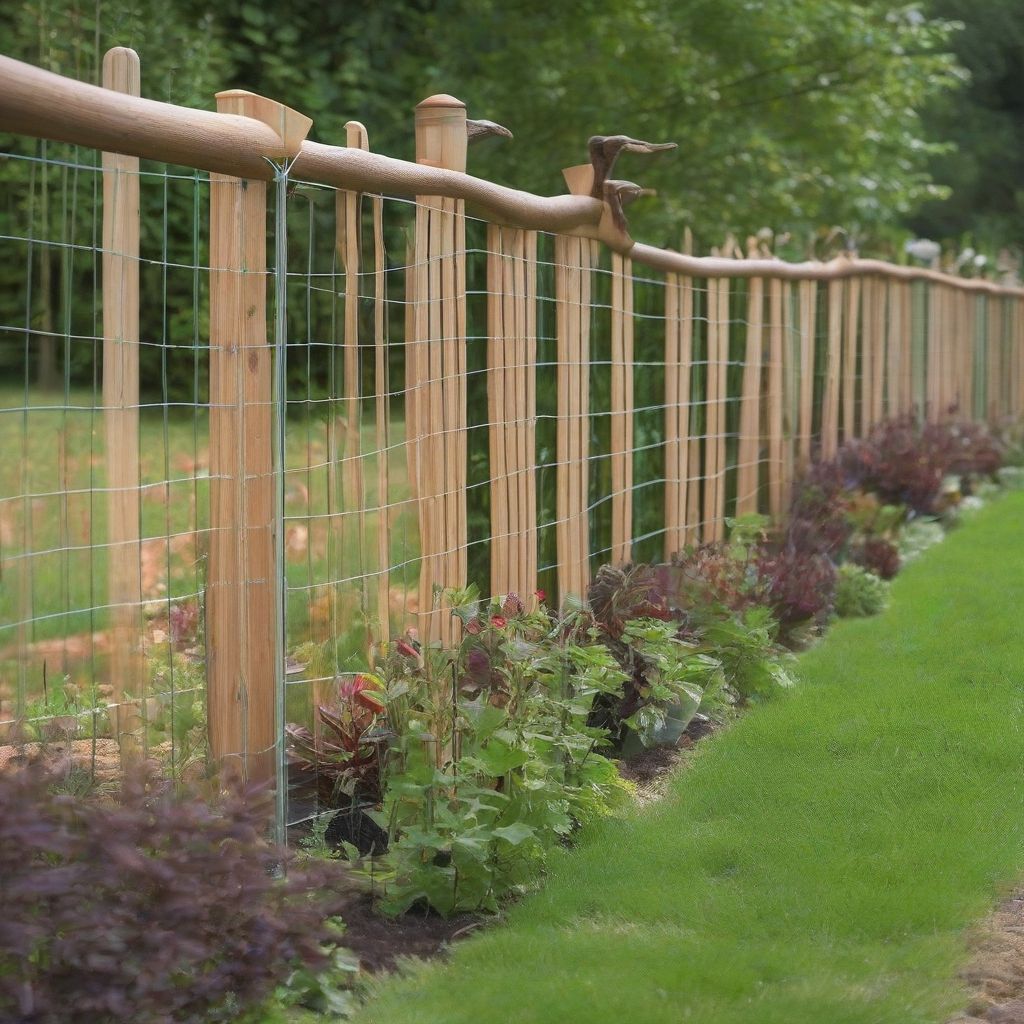Imagine waking up to a vibrant garden, only to find your prized roses nibbled to the stems and your lettuce patch decimated. Dealing with garden pests can be frustrating, but there’s a way to protect your plants without resorting to harsh chemicals. Let’s explore natural, effective methods to deter deer, rabbits, and other unwelcome visitors, ensuring your garden thrives.
Understanding the Enemy: Know Your Pests
Before we dive into solutions, it’s important to know what we’re up against. Different pests are attracted to different plants and have varying levels of persistence. Rabbits, for example, love tender greens and are notorious for their nibbling habits. Deer, on the other hand, can reach higher plants and might decimate your fruit trees or flowering shrubs. Identifying your specific pest problem is the first step to effective deterrence.
Recognizing Rabbit Damage
Rabbit damage is typically characterized by clean, angled cuts on plants, often close to the ground. They favor young, tender shoots and can quickly decimate seedlings.
Identifying Deer Damage
Deer damage can be more extensive. They tend to tear at plants, leaving jagged edges. They often browse higher up on plants and can cause significant damage to shrubs and trees.
 Deter Deer and Rabbits
Deter Deer and Rabbits
Natural Deterrents: Keeping Pests at Bay
Now that we’ve identified the culprits, let’s explore some natural ways to discourage them from feasting on your garden.
Scent-Based Deterrents: Confusing Their Senses
Many animals, including deer and rabbits, rely heavily on their sense of smell. Using strong scents can disrupt their foraging habits and encourage them to seek food elsewhere.
- Irish Spring Soap: The strong scent of this soap is known to deter deer and rabbits. Simply hang bars of the soap in mesh bags around your garden.
- Predator Urine: Replicating the scent of predators, like coyote or fox urine, can create a sense of danger for deer and rabbits. You can purchase predator urine online or at garden centers.
- Essential Oils: Certain essential oils, such as peppermint, rosemary, and lavender, can also deter pests. Mix a few drops with water and spray around your plants.
Taste-Based Deterrents: Making Plants Unpalatable
Another effective strategy is to make your plants taste unpleasant. This won’t harm the plants, but it will make them less appealing to hungry critters.
- Hot Pepper Spray: Mix hot peppers with water and spray on your plants. The capsaicin in peppers creates an unpleasant burning sensation for animals, deterring them from eating the plants.
- Garlic Spray: Similar to hot pepper spray, garlic spray can create an unappetizing taste for pests.
Physical Barriers: Creating Obstacles
Sometimes, the most effective deterrent is a physical barrier. These methods prevent pests from reaching your plants in the first place.
- Fencing: Installing a fence around your garden is a reliable way to keep deer and rabbits out. Make sure the fence is tall enough and buried deep enough to prevent them from jumping over or digging under.
- Netting: Netting can be used to protect individual plants or small areas. This is particularly effective for protecting fruit trees and berry bushes.
- Chicken Wire: Chicken wire can be placed around the base of plants to prevent rabbits from reaching them.
Companion Planting: Utilizing Nature’s Helpers
Companion planting involves strategically planting certain species together to deter pests. Some plants naturally repel pests, while others attract beneficial insects that prey on them.
- Marigolds: These brightly colored flowers emit a strong scent that deters rabbits and other pests.
- Onions and Garlic: The pungent smell of onions and garlic can discourage many animals from approaching your garden.
 Natural Pest Deterrents
Natural Pest Deterrents
Case Study: Maria’s Rose Garden Revival
Maria, an avid gardener in Connecticut, struggled for years to protect her prized roses from deer. After trying various methods, she finally found success by combining several natural deterrents. She installed a tall fence around her rose garden and supplemented it with Irish Spring soap and predator urine. The combination of physical barriers and scent-based deterrents proved highly effective, allowing her roses to flourish without damage. “I was amazed at the difference,” she shared. “My roses have never looked better!”
Expert Insight: Dr. Green Thumb’s Advice
According to Dr. Green Thumb, a renowned horticulturalist, “The key to successful pest control is to adopt an integrated approach. Combining different natural methods offers the best protection against a variety of pests.” He recommends starting with scent-based deterrents and physical barriers, then adjusting your strategy based on the specific pests in your area and the types of plants you are growing.
Conclusion: Reclaiming Your Garden Naturally
Protecting your garden from pests doesn’t require resorting to harmful chemicals. By understanding the pests you’re dealing with and employing a combination of natural deterrents, you can effectively keep them at bay. From scent-based repellents like Irish Spring soap and predator urine to physical barriers like fencing and netting, and even companion planting, there’s a natural solution for every garden. Experiment with different methods to find what works best for your specific situation, and enjoy a thriving, pest-free garden.
We’d love to hear about your experiences! Share your tips and tricks for deterring pests in the comments below. What natural methods have you found most effective? Let’s help each other create thriving, beautiful gardens.



